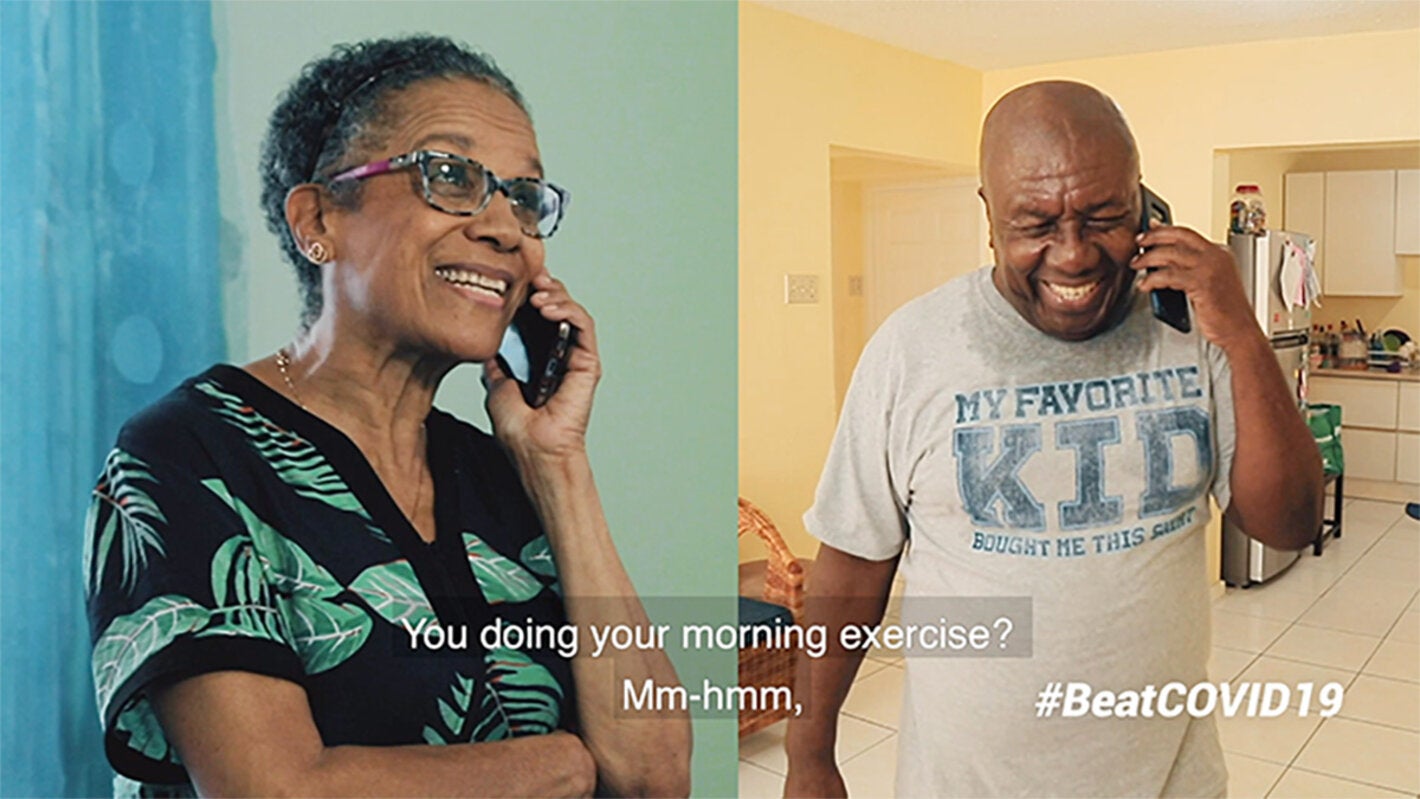
Kingston, 21 July 2021 (PAHO/WHO) — People worldwide are living longer. This reality presents opportunities for people to further their education, start a new career or pursue neglected passions after retirement. However, the pace of population aging is much faster than in the past and countries worldwide must ensure that health and social systems are ready to make the most of this demographic shift.
Healthy aging is defined as the process of developing and maintaining the functional ability that enables wellbeing in older age. Functional ability relates to a person’s capacity to meet their basic needs, make decisions, build relationships and contribute to society.
Research from the World Health Organization states that between 2015 and 2050, the proportion of the world's population over 60 years will nearly double from 12% to 22%. While population aging is known in Japan, which features 30% of its population over 60 years old, developing countries are now experiencing the most significant change. Closer to home, statistics from Jamaica’s population census demonstrated that between 2001 and 2011 the over 60-year old population increased by 15.3% while the total population increased by just 3.5%.
The United Nations Assembly declared the years 2021 to 2030 as the Decade of Healthy Ageing. It aims to create healthy environments and opportunities that enable older people to fulfill their potential in dignity and equality. As a proactive step, the Pan American Health Organization (PAHO) has promoted the International Accreditation of Competences in Health Care for Older Persons (ACAPEM) for health professionals.
Creating an enabling environment to support healthy aging is something that we can all do. Here are some tips to support older people to enjoy long, productive lives at home:
- Make safety a priority: Install adequate lighting and support fixtures such as railings in showers and on stairwells to reduce the possibility of injury.
- Show love and care: The COVID-19 pandemic has been challenging for the elderly who have lost friends and loved ones or cannot travel to traditional locations for socializing. While adhering to COVID-19 protocols, take time to contact elderly relatives to show love and care during this new normal.
- Support continued learning: Take the time to teach the elderly how to utilize new technologies or introduce them to opportunities on the internet for learning new skills.



